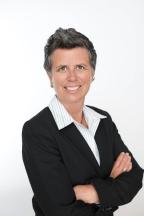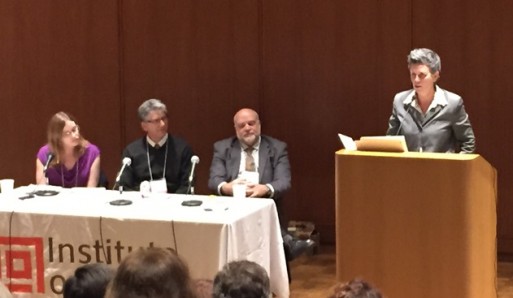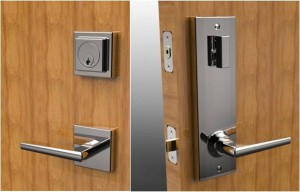Today SevenPonds speaks with Kathryn A. Stebner, Principal and Attorney at Law of Stebner and Associates. Based in San Francisco, Stebner received her B.A. in Political Science from University of Oregon in 1982 and her J.D. from University of San Francisco in 1985. Her firm focuses on a wide range of elder abuse areas, including neglect, financial and estate planning. Today she discusses her firm’s specialties in regards to elder abuse areas, what led to her decision to pursue elder abuse law and her personal approach to handling her clients’ cases.
Zoë: Who are Stebner and Associates and what do you specialize in?
Kathryn: We are a law firm who brings cases against long-term health care facilities for the neglect of elders. We do both individual and class action lawsuits. We also do cases involving financial abuse. Having recently added estate planning to our services, we have become a full-service law for elders and their families.
Zoë: What areas of elder abuse law do you specifically focus on?
Kathryn: First, we focus on physical abuse, such as rape and molestation, bedsores, choking, falls, burns and overall neglect in nursing homes and assisted living facilities. Number two, we do class action lawsuits against nursing homes and assisted living facilities for misrepresentation and low staffing. We also do class action lawsuits of financial elder abuse against institutions. Next, we do individual financial elder abuse cases with a focus of bringing cases against institutions and sometimes between family members. Lastly, we do estate planning for elders and their families to help them take control of their own lives in a partial attempt [to make sure] that abuse doesn’t happen to them in the future.
Zoë: Why did you choose to get into elder abuse law?
Kathryn: My parents were very young when they had me, so I grew up with my grandparents and most of my great-grandparents living very closely to me in Salem, Oregon. They were my only babysitters. I like old people. I love talking to them and listening to their stories. I really don’t like the way we live in an ageist society. People should be revered for their age, not looked down upon.
“I really don’t like the way we live in an ageist society. People should be revered for their age, not looked down upon.”
Zoë: Given the sensitive and traumatic situations that your clients face, what is your personal approach to handling their cases?
Kathryn: First of all, almost all of my clients are demented or dead. Many times, the clients I have contact with and work with are family members. Family members often feel guilty and responsible. They feel that they should have done more or should not have put them in the facility. My first job is to say that it’s not their fault. It’s the fault of the facility. The next thing I do? I tell them that, in my opinion, lawsuits bring about change. I tell them that they are not just helping their family members, but that they’re helping to change society for good and that they should be proud of that.
“Family members often feel guilty…My first job is to say that it’s not their fault. It’s the fault of the facility.”
Lastly, I tell them that unfortunately what happened to their family member is all too common. At my firm that’s why we bring class action lawsuits against organizations. We work with nonprofits to support legislature regarding elder issues. A lawsuit is one piece of the puzzle to making changes for the better. Everyone that comes to me says they don’t want this to happen to anyone else. We don’t just try to get compensation for families. We also try to get facilities to make changes to their policies and to train their employees. I believe the reason a lawsuit is so important is that the only thing that will make our society change is money — because institutions don’t want to lose profits. I am convinced of that.
Zoë: Do you have any upcoming speaking engagements about topics that might interest our readers?
Kathryn: Currently, the next speaking engagement on our calendar is in September.
Zoë: How can family members help their loved ones when they have been victims of sexual abuse in the assisted-living facilities they have personally selected ?
Kathryn: Dealing with sexual abuse in a setting where residents are often mentally or physically impaired is very challenging. Any facility aware of the propensity of a particular resident for this sort of behavior has a duty to its residents to monitor him or her closely and to protect other residents from inappropriate behavior.
“…signs of sexual elder abuse might not be as obvious to observers as signs of other types of abuse.”
Incidents of this nature are improper and are criminally punishable, although signs of sexual elder abuse might not be as obvious to observers as signs of other types of abuse.
A civil attorney can assist in ensuring that changes are made at the facility to reduce the chance of further sexual abuse at the facility and also compensate the elder for what has occurred.
Zoë: Do you have any stories or examples of some of the cases you’ve worked on or testimonies you have given to the Senate that you would be willing to share?
Kathryn: In the past 30 years, I have brought many, many cases against nursing homes and residential care facilities for the elderly (RCFE), which include small board and care homes where 6 people will live two to a room in someone’s house. These places can be uninhabitable, and elderly people are being placed in them every day. We bring lawsuits on behalf of individuals who have been injured or died in facilities, and we also bring class action suits to try to make systemic change.
“These places can be uninhabitable and elderly people are being placed in them every day.”
We have also brought class actions suits against chains that operated assisted living facilities for misrepresentation about their “point systems.” Often, a facility will bring in a new resident with a reasonable monthly fee, then continually add services at [the cost of] extra fees, without actually adding the staff to provide those extra services. We recently settled with Emeritus Corp. (now Brookdale) for $13 million for allegedly misrepresenting that staffing decisions were based on personal care assessments when, in reality, the facilities were staffed based on labor budgets.
We also bring financial elder abuse cases, whether an individual has stolen from an elderly relative, neighbor or employer (in the case of caregivers), or class actions against institutions that prey on the elderly with products that are totally inappropriate for them. We brought two class action cases against trust mills that charged substantial sums to elders for creating a trust online, which were not tailored to their needs. We have brought class actions against Legal Zoom and We The People for the unauthorized practice of law focusing on elders.
Zoë: Any words of wisdom for our readers ?
Kathryn: From the point of view of helping your own family member, finding a good Assisted Living or Nursing Home for mom or dad requires visiting the facility and online research to learn if they are licensed, and if so, have they gotten in trouble with the appropriate state-licensing bureau.
In California, you can search Community Care Licensing for a list of all licensed facilities. Also, an excellent resource is California Advocates for Nursing Home Reform.
The following are 12 key points “which will help families understand just how important their evaluation of the facility really is and questions which need to be answered”:
1) Staff is the key to everything, especially those who are engaging residents in a variety of activities, which help to keep them healthy. If you see people sitting in a corner in wheelchairs and no one interacting with them, this is a bad sign.
2) What is the staffing ratio? How many staff per resident?
3) Does the facility change staffing when people with higher needs are there?
4) Does the facility staff to acuity – does it make staffing decisions based on how sick the residents are? Or does it make staffing decisions based only on the number of residents?
5) What kind of activities does it have for residents, and are they documented? Does it document changes of condition, if a resident is eating, falls, reacting poorly to medications, or having appetite changes?
6) Does it have either an LVN or an RN, and if so, are they on call or on premises, and if so, when?
7) How much does it spend per day per resident for food? $2.50 per person raises a red flag.
8) Has it been cited by the state for regulatory or legal violations?
9) Is this a secured facility? Are the doors and windows locked? This is especially important for family members with dementia.
10) How does it deal with fall prevention? Or with residents who might not get along?
11) Is this a large, corporate-owner facility, or is there an independent owner? This is important because you want people who can make decisions affecting your loved one here and now, not three states and two time zones away.
12) Trust your nose! If the place does not smell good, this means they are not cleaning common areas or residents who need it. Having an adequate amount of staff for the resident population is critical.
From the advocacy point of view, we always need persons to step up to the plate and tell their stories — to us, and to the legislature. You are our eyes and ears. We need these stories.
Zoë: Thank you for speaking with us!
Kathryn: Thank you!

 What is Elder Abuse Law? An Interview with Kathryn A. Stebner, Part One
What is Elder Abuse Law? An Interview with Kathryn A. Stebner, Part One







 Funeral Favors Offer Visitors a Tangible Memento
Funeral Favors Offer Visitors a Tangible Memento
 “Comeback” by Prince
“Comeback” by Prince















